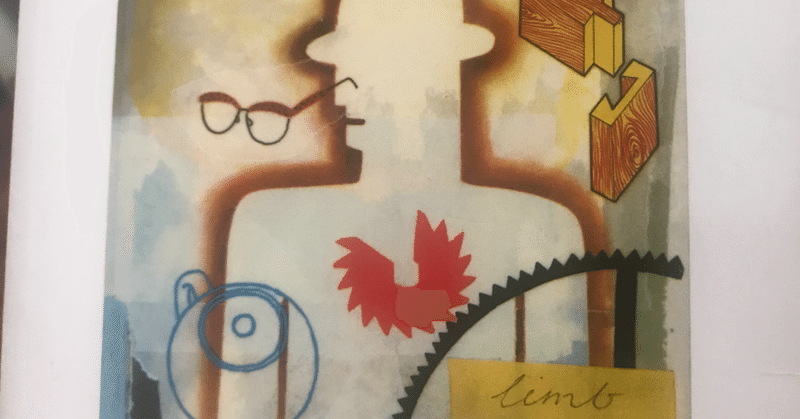
スティグマの社会学5
While the stranger is present before us, evidence can arise of his possessing an attribute that makes him different from others in the category of persons available for him to be, and of a less desirable kind – in the extreme, a person who is quite thoroughly bad, or dangerous, or weak. He is thus reduced in our minds from a whole and usual person to a tainted, discounted one. Such an attribute is a stigma, especially when its discrediting effect is very extensive; sometimes it is also called a failing, a shortcoming, a handicap.
It constitutes a special discrepancy between virtual and actual social identity. Note that there are other types of discrepancy between virtual and actual social identity, for example the kind that causes us to reclassify an individual from one socially anticipated category to a different but equally well-anticipated one, and the kind that causes us to alter our estimation of the individual upward. Note, too, that not all undesirable attributes are at issue, but only those which are incongruous with our stereotype of what a given type of individual should be.
見知らぬ人と出会ったとき、明らかに他の人と違って普通でない属性、しかも望ましくないもの(極端な例だと、悪人や危険人物、無能な人間)を示す証拠を、私たちは見つけるかもしれない。見つけた瞬間、私たちの心の中で、その人は健全で普通の人間から、汚れて卑近なものと評価される。このような評価を引き起こす属性こそ、スティグマである。評価を貶める力が極めて広範囲にわたるとき、その属性をスティグマと呼ぶ。ときには欠点や短所、ハンディキャップとも呼ばれていることもある。
スティグマは、仮の社会的アイデンティティと真の社会の的アイデンティティとの間にある特殊なズレである。ただし、このズレには様々なタイプがある。例えば、ある人の属性を当初想定していたものから、また別の(想定範囲内で)同程度の属性に再分類する場合がある。もしくは、ある人の特徴をより良いものに評価し直すこともある。また、全ての望ましくない属性が問題となるわけではない。私たちの持つ「この人たちはこうあるべき」というステレオタイプとのズレが問題なのである。
The term stigma, then, will be used to refer to an attribute that is deeply discrediting, but it should be seen that a language of relationships, not attributes, is really needed. An attribute that stigmatizes one type of possessor can confirm the usualness of another, and therefore is neither creditable nor discreditable as a thing in itself.
For example, some jobs in America cause holders without the expected college education to conceal this fact; other jobs, however, can lead the few of their holders who have a higher education to keep this a secret, lest they be marked as failures and outsiders. Similarly, a middle class boy may feel no compunction in being seen going to the library; a professional criminal, however, writes
I can remember before now on more than one occasion, for instance, going into a public library near where I was living, and looking over my shoulder a couple of times before I actually went in just to make sure no one who knew me was standing about and seeing me do it?.
スティグマという言葉は、その人への評価や信頼をひどく落とす属性として用いられる。しかし、これまでの議論を踏まえると、属性ではなく関係を示す言葉としてスティグマを考えるべきだろう。ある種の人たちが持つとスティグマとなる属性も、また別の人たちが持つと正常を示す属性となることがある。つまり、属性それ自体だけで評価を得るのか、あるいは失うのかは判断できない。
例えばアメリカでは、大卒が求められる仕事に就くため、大学を出ていない者がその経歴を隠そうとする。一方、別の仕事では、ほとんど大学を出た人がいないので、その中の大卒者は自分の教育歴を秘密にしようとする。なぜなら、落ちこぼれや部外者と思われたくないからである。似たような例を挙げよう。中流階級の少年は、図書館に行くところを見られても良心の呵責は生じないが、職業的に犯罪を行っている者はそうではないようだ。ある犯罪者は言う。
「一度だけじゃない、覚えてる。例えば、近所の公共図書館に行くとするだろう。建物に足を踏み入れるまでに、何度も後ろを振り返ってしまう。周りに自分を知っている人間がいて、図書館に入っていくところを見ているのではないかと確認してしまうんだ」
So, too, an individual who desires to fight for his country may conceal a physical defect, lest his claimed physical status be discredited; later, the same individual, embittered and trying to get out of the army, may succeed in gaining admission to the army hospital, where he would be discredited if discovered in not really having an acute sickness.
A stigma, then, is really a special kind of relationship between attribute and stereotype, although I don't propose to continue to say so, in part because there are important attributes that almost everywhere in our society are discrediting.
もう一つ、似た例を挙げよう。自らの身体的障害を隠して軍隊に入った人がいた。それは障害によって評価を下げられないためだった。しかし、入隊してからその人は辛い思いをして、逃げ出したくなった。そこでうまく取り繕って、軍隊の病院に行ったのだ。そこで、本当は深刻な疾患でないことを知られたら、彼はまた別の意味で貶められることになるだろう。
このように、スティグマはある属性とステレオタイプとの、特殊な関係性を指す言葉なのである。繰り返しこのことを説明してきたが、一方で私たちの社会にはほとんど常に評価を貶めてしまう、重大な属性も存在する。
【解説・補足】
本書の中でも重要な部分であり、ゴフマンの考えが端的に示されている。スティグマとは、周りからの信頼や評価を台無しにしてしまう属性、という説明では不十分である。他者からの「こう振る舞うだろう、こんな属性だろう」という期待(=仮の社会的アイデンティティ)と、実際のその人の特徴や属性(=真の社会的アイデンティティ)に大きくネガティブな解離があったとき、その属性がスティグマと呼ばれる。
つまり、私たちが意識していない普通や当たり前から、悪い方向に外れた属性や特徴を見つけたとき、それをスティグマと呼ぶのだ。普通や当たり前は、出会う状況によって異なる。
例えば、男性に期待するものと女性に期待するものは違う。「優しく気遣いのできる」男性は、「弱々しくて頼りない」と言われるかもしれない。反対に「積極で行動力のある」女性は「でしゃばりで厄介」と評価されるかもしれない。初めから期待していたものから外れたときに、その属性や特徴がスティグマになりうるのだ。
スティグマを「属性」ではなく「関係」から捉えたのは、ゴフマンの重要な業績の一つである。ゴフマンの特徴として、具体例と理論を交互に示して議論を展開する。しかし、その例が半世紀前の欧米のため、今の私たちの感覚ではピンとこないときもある。学歴の例は今にも当てはまるかもしれないが、犯罪者や軍隊の例は、個人的にあまりしっくりこなかった。むしろ、上記のジェンダー例の方が現代的な感覚に合うと思ったので例示した。
この記事が気に入ったらサポートをしてみませんか?
